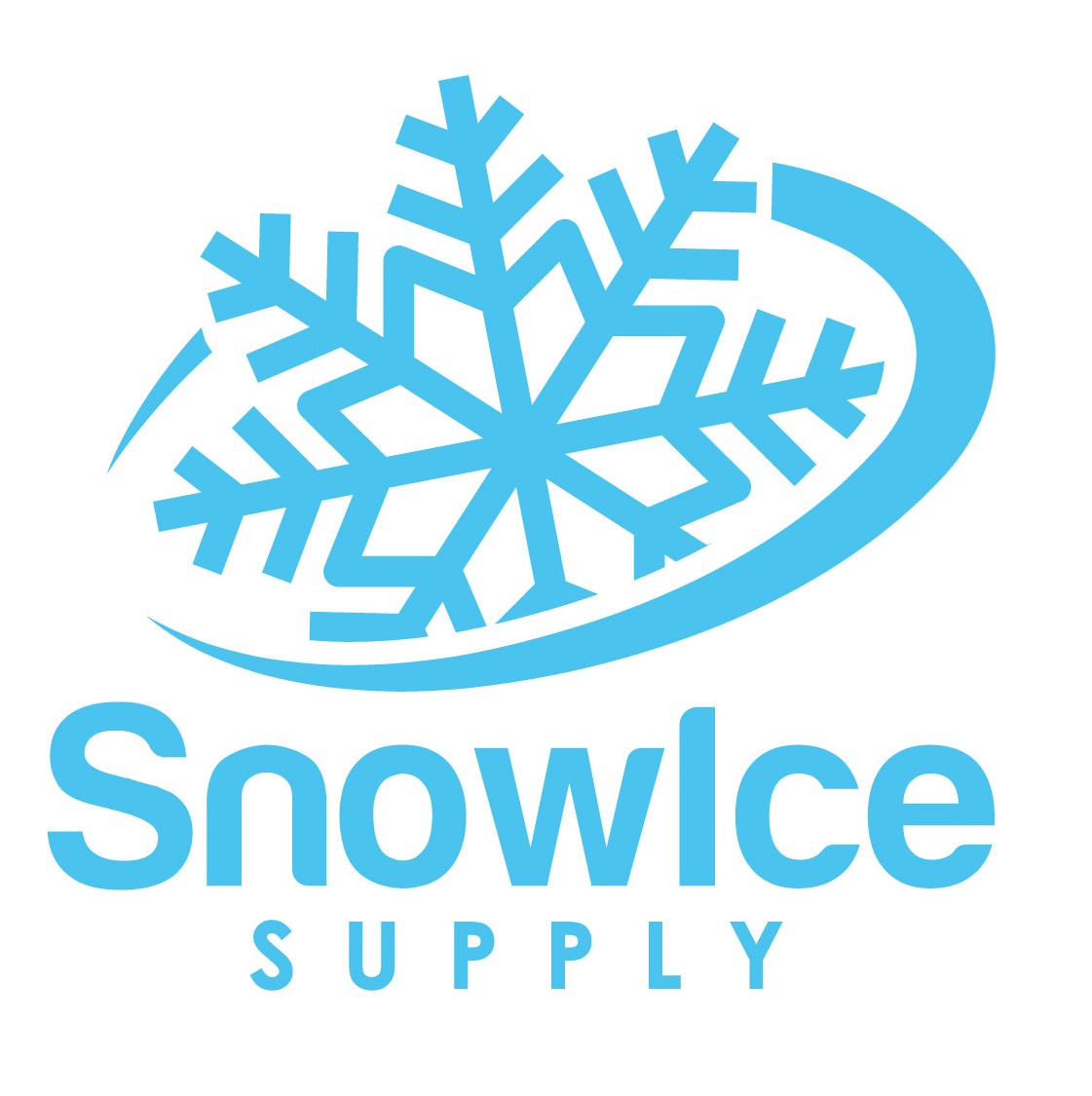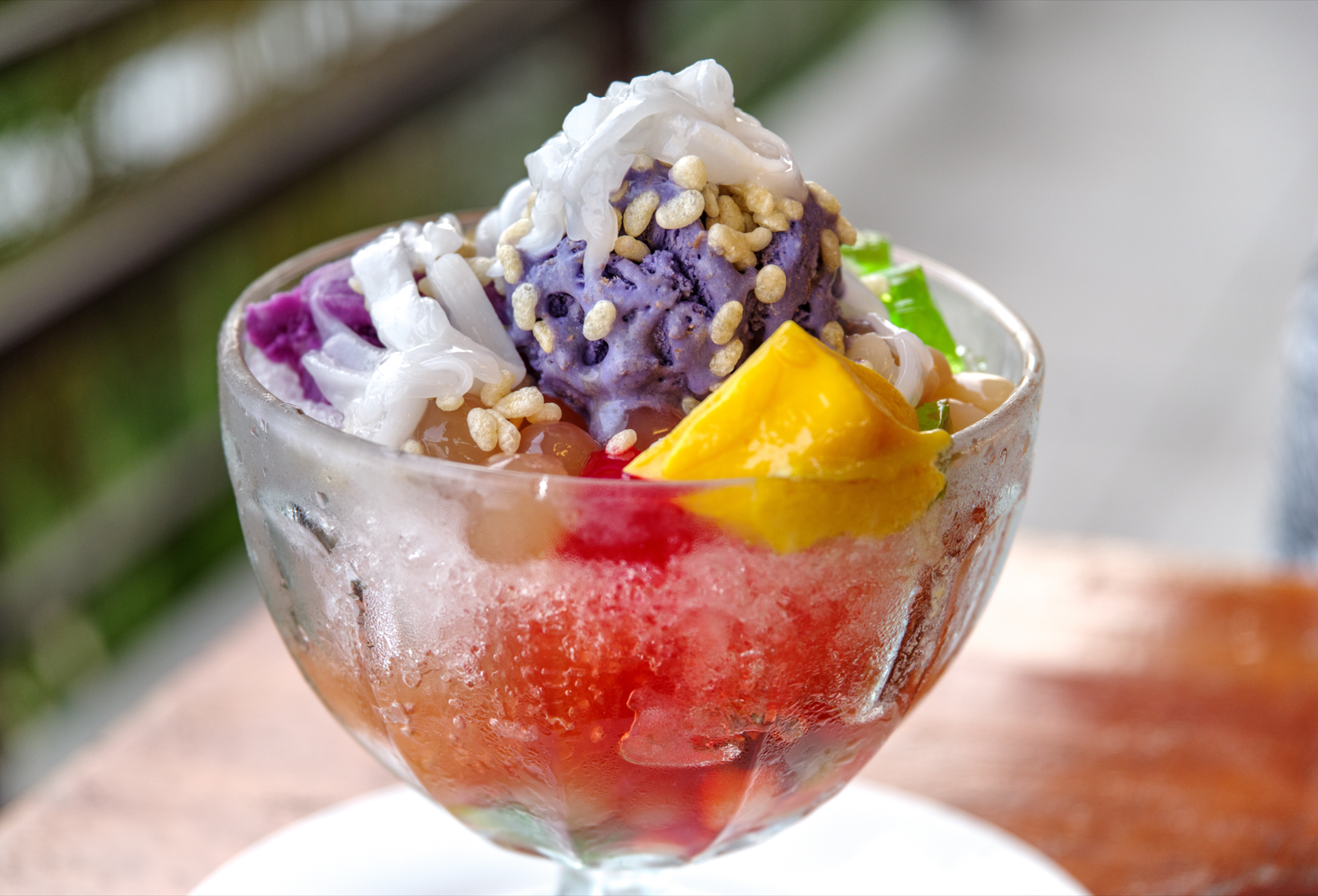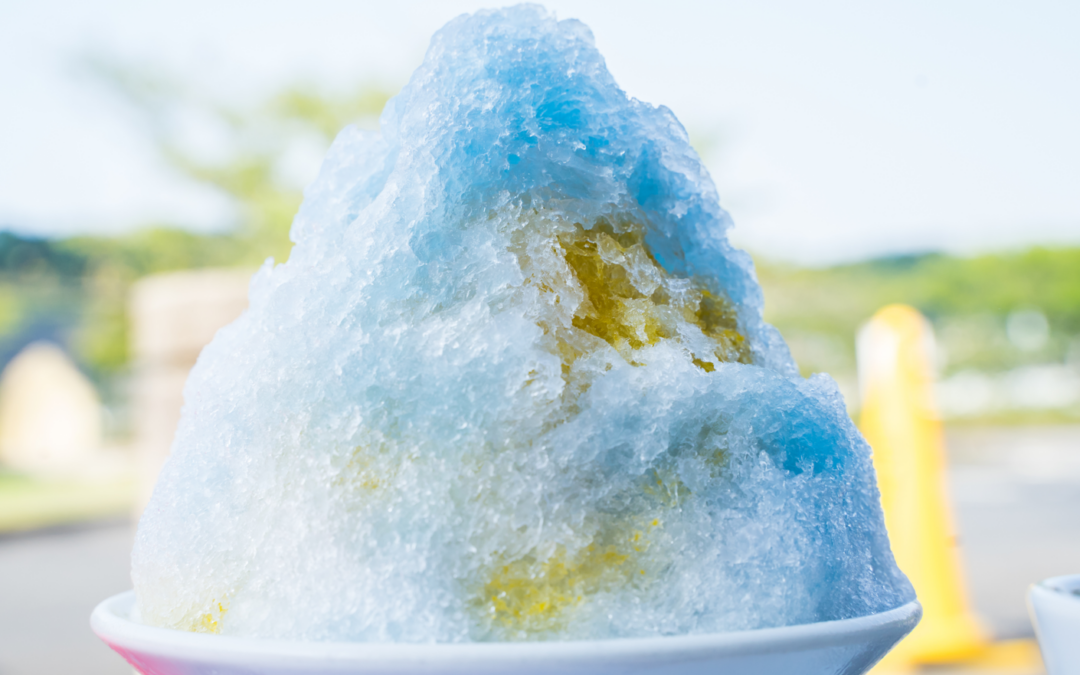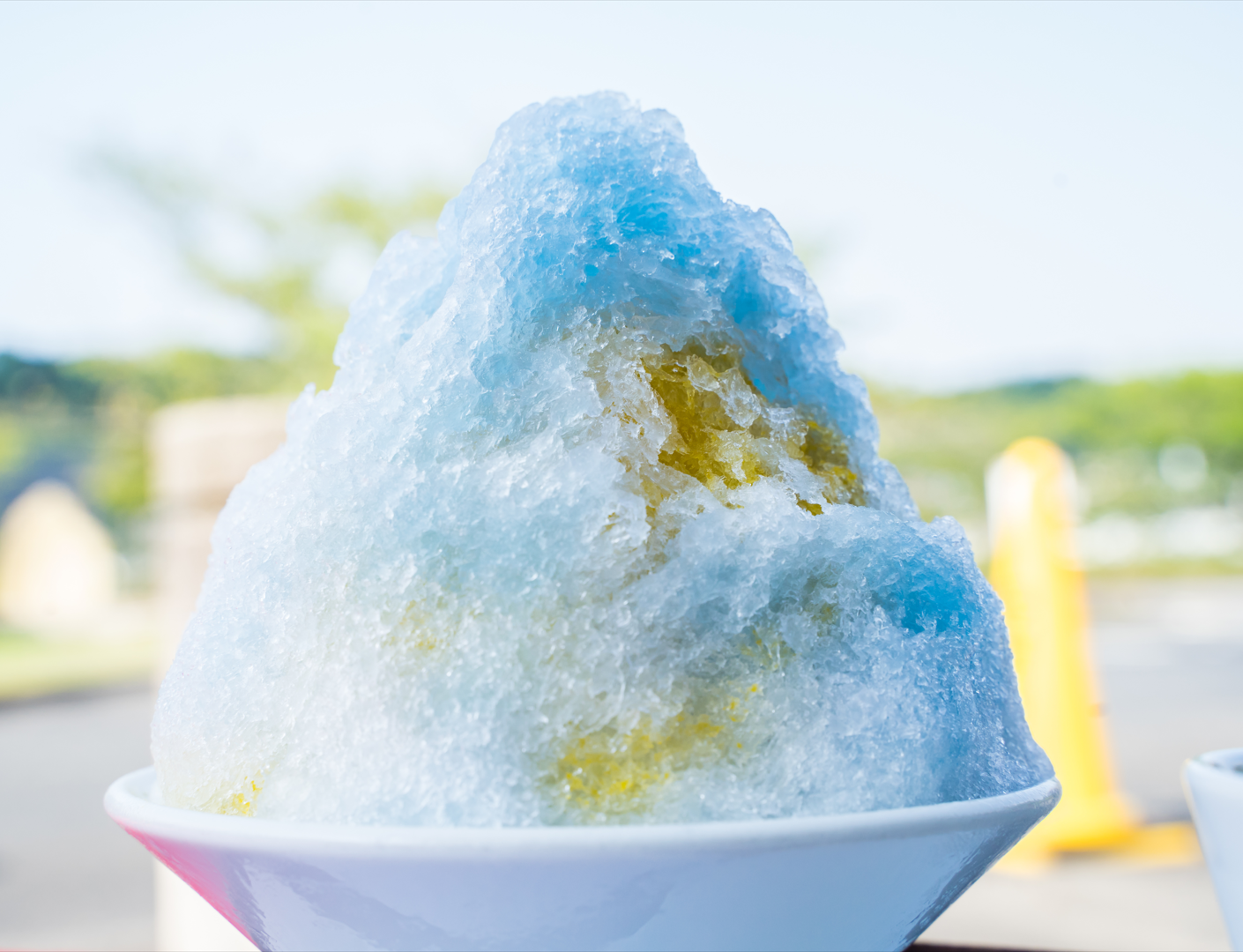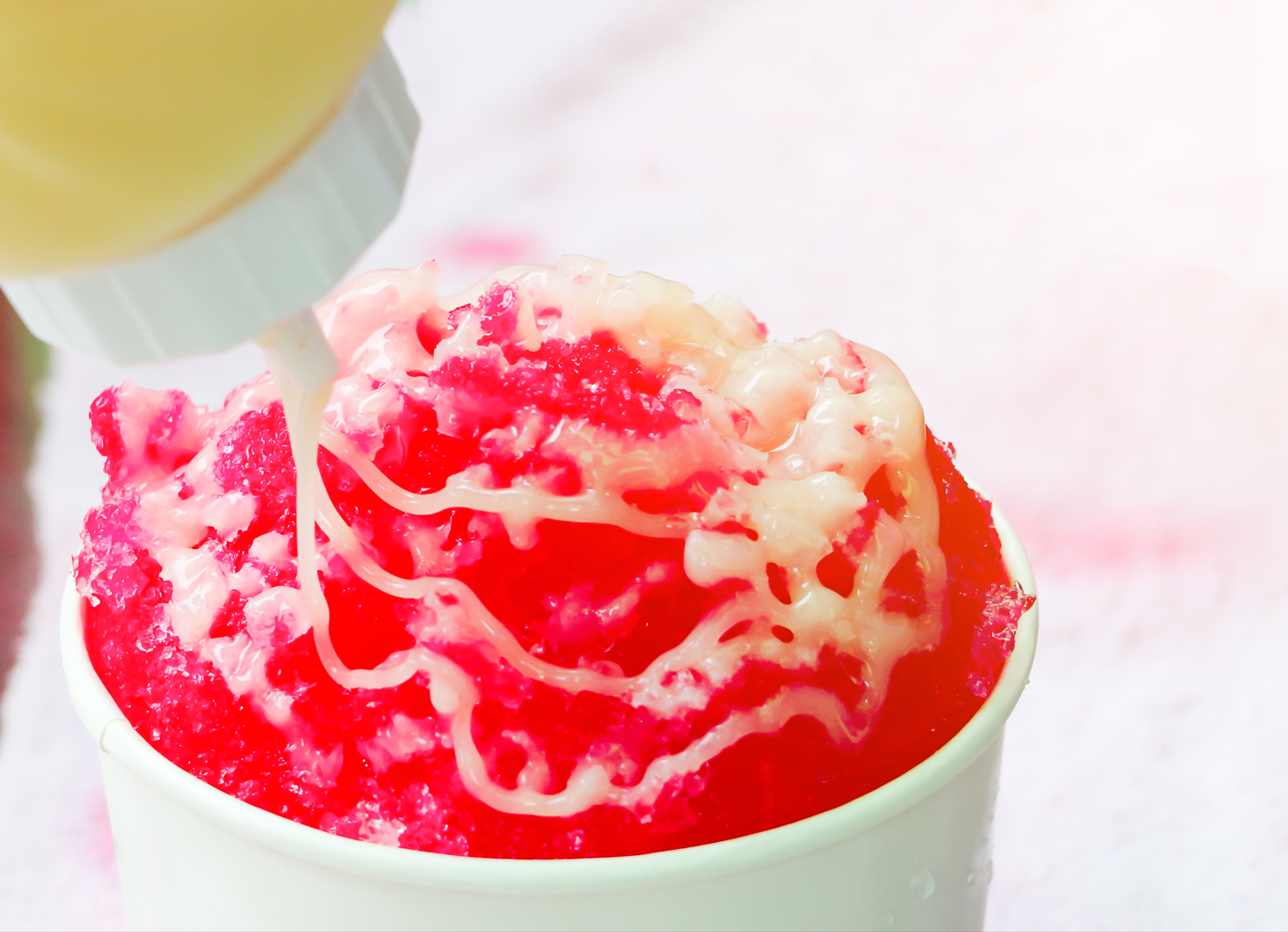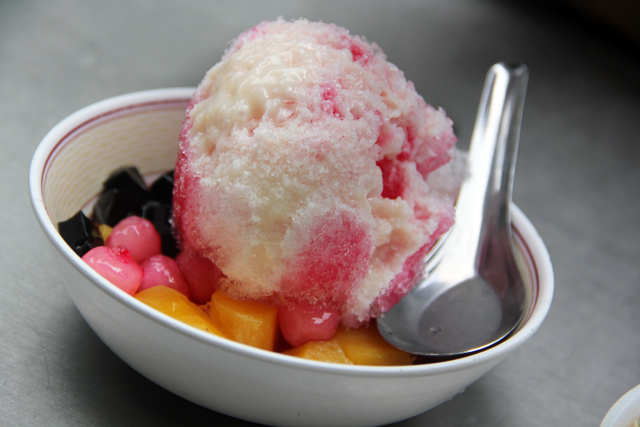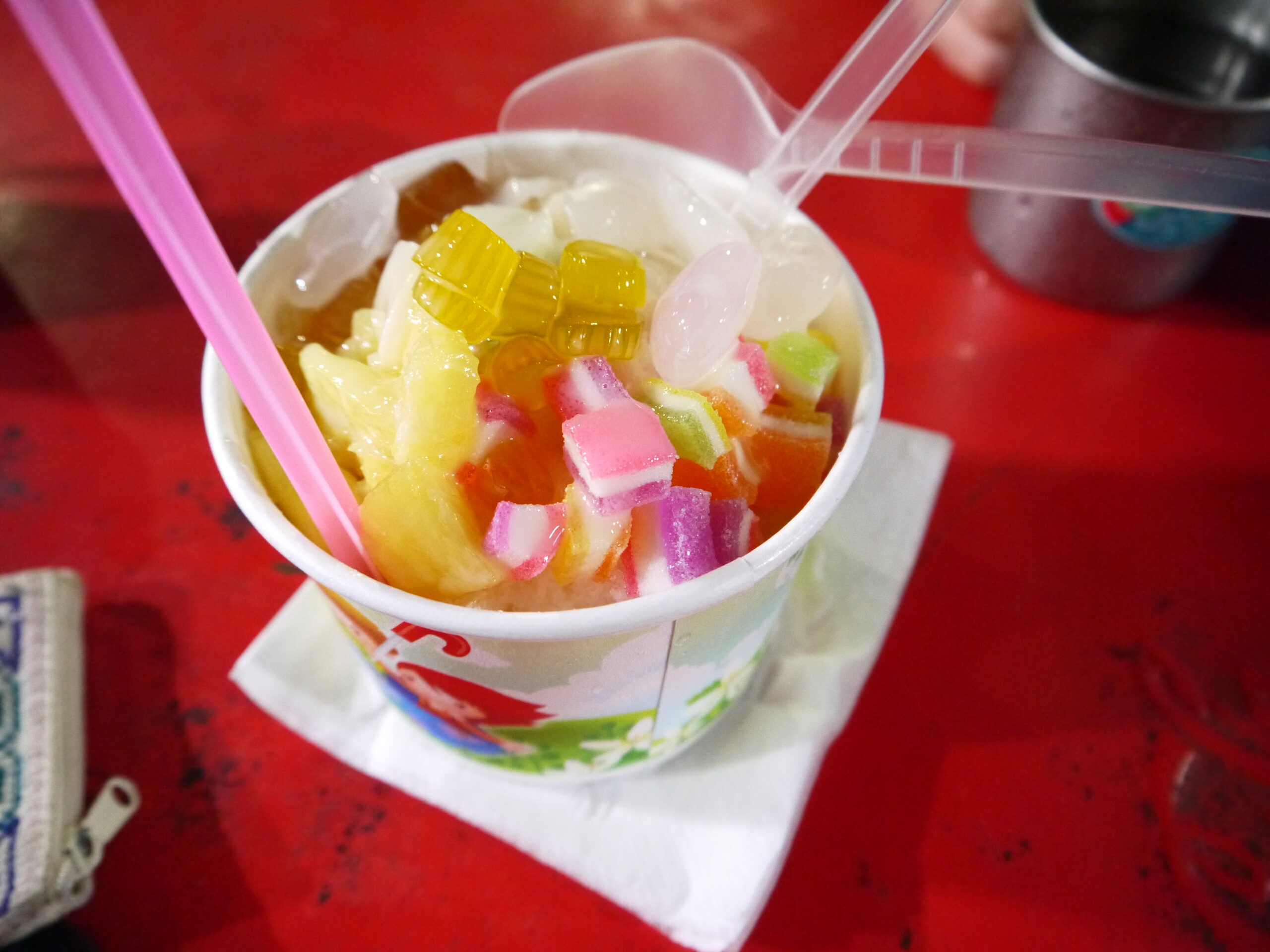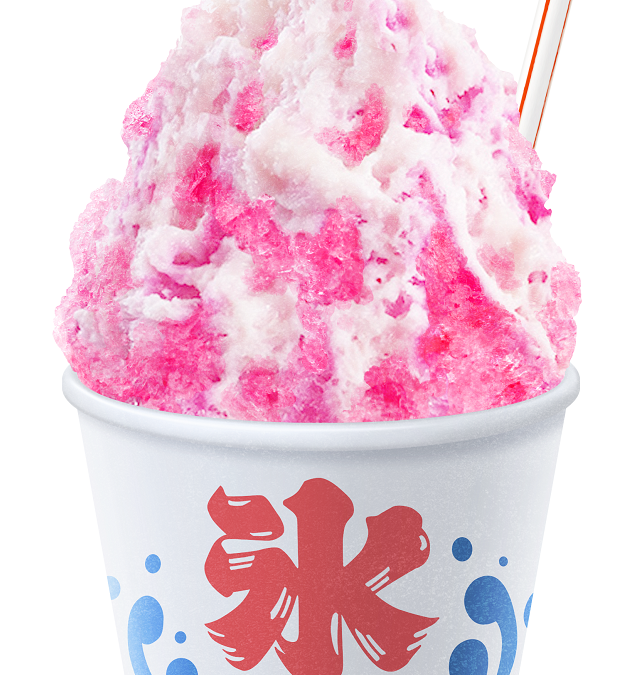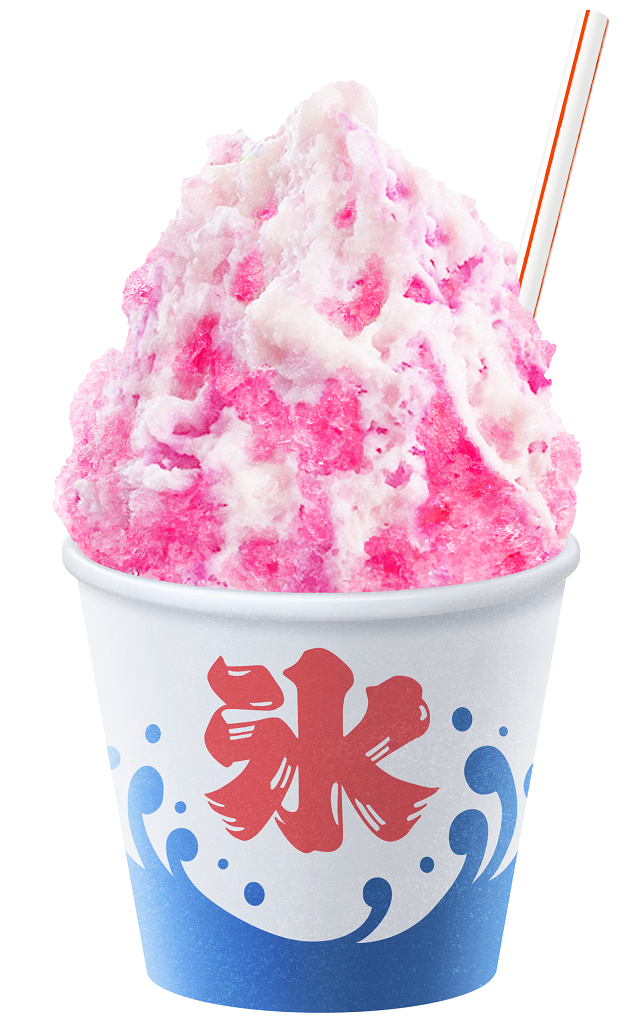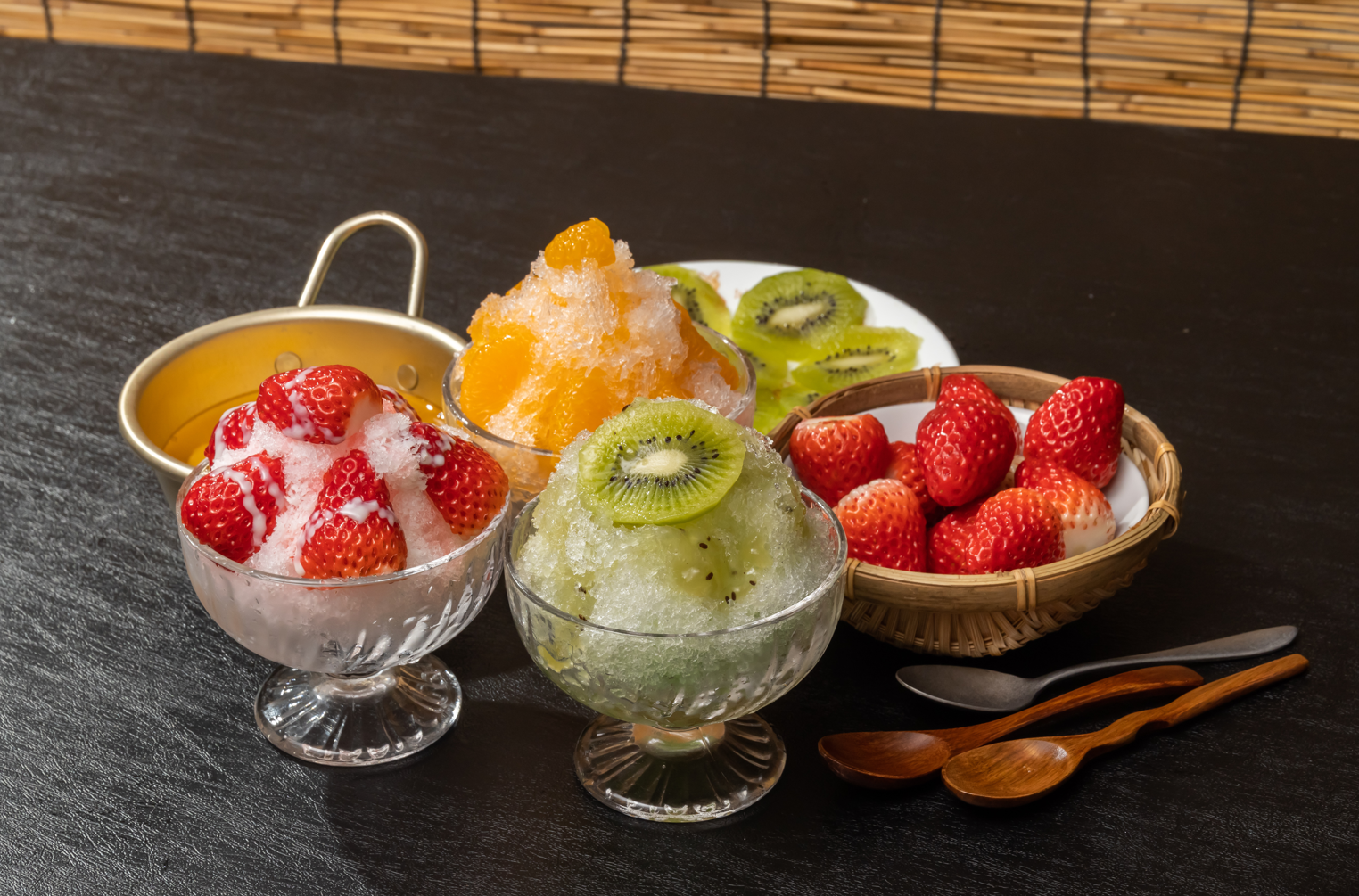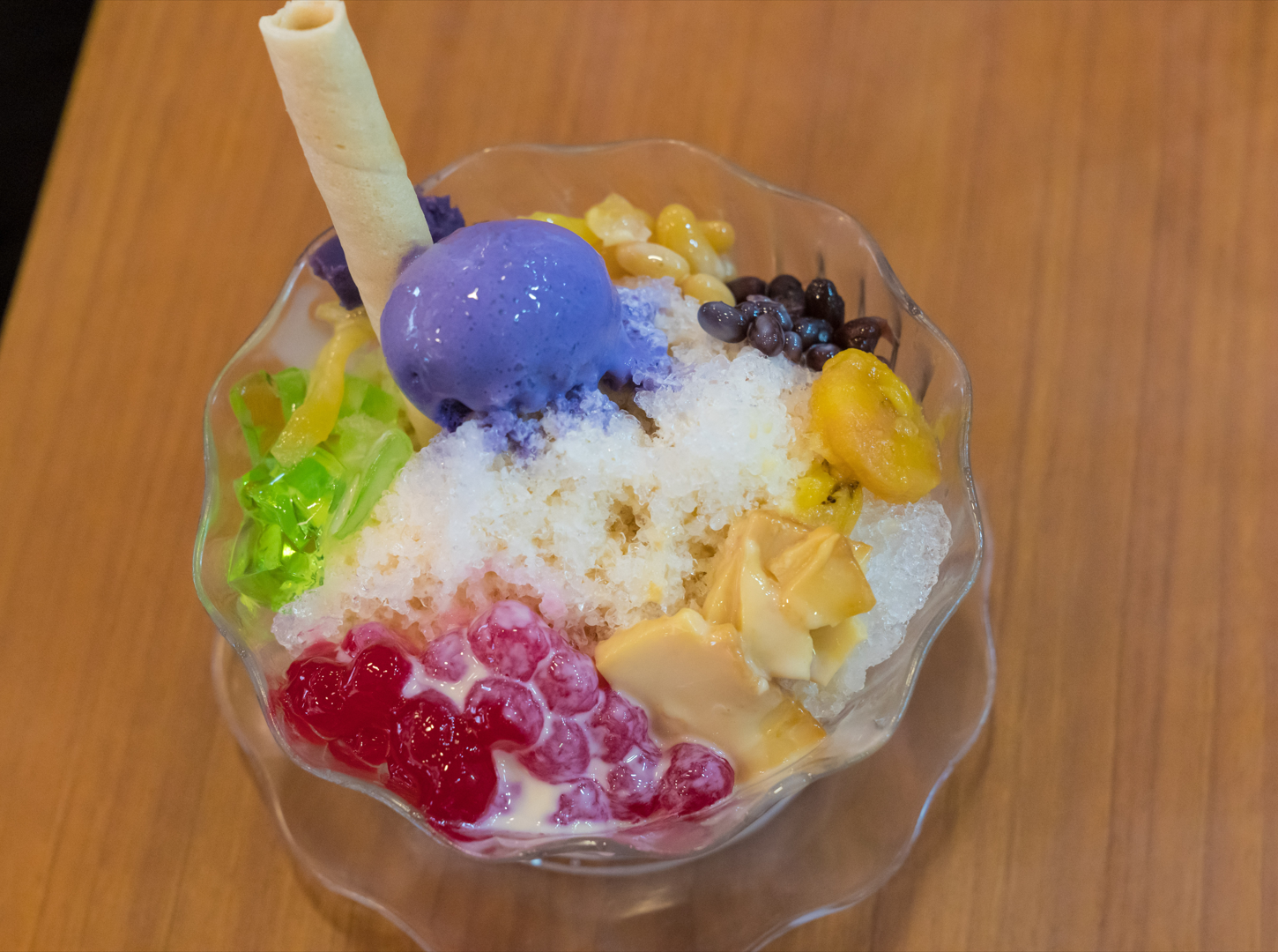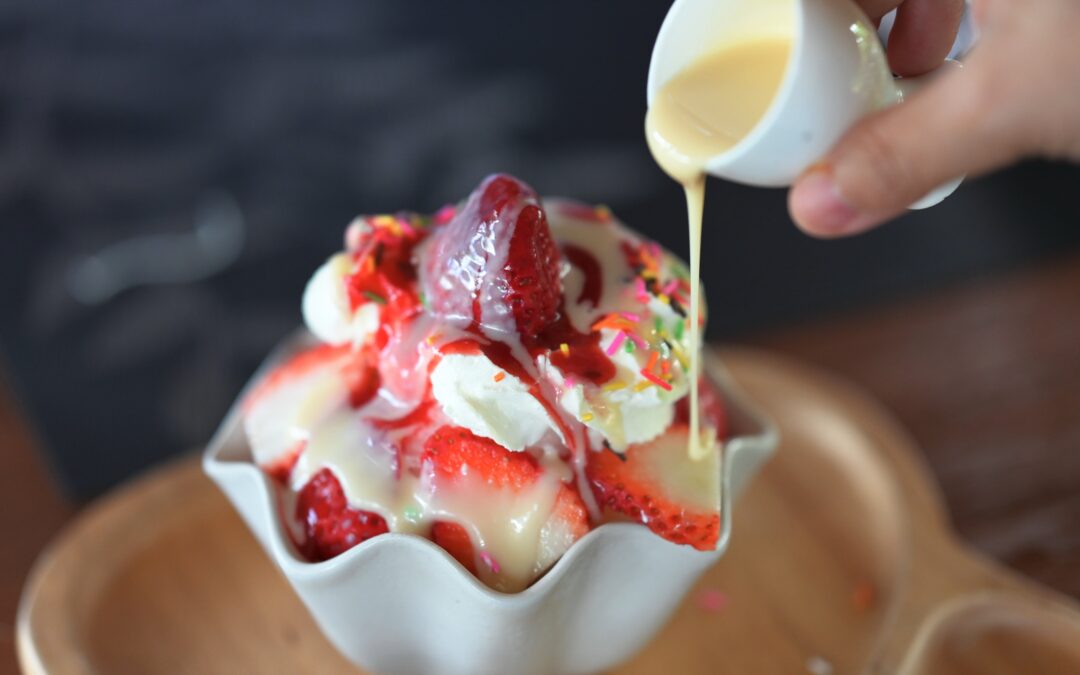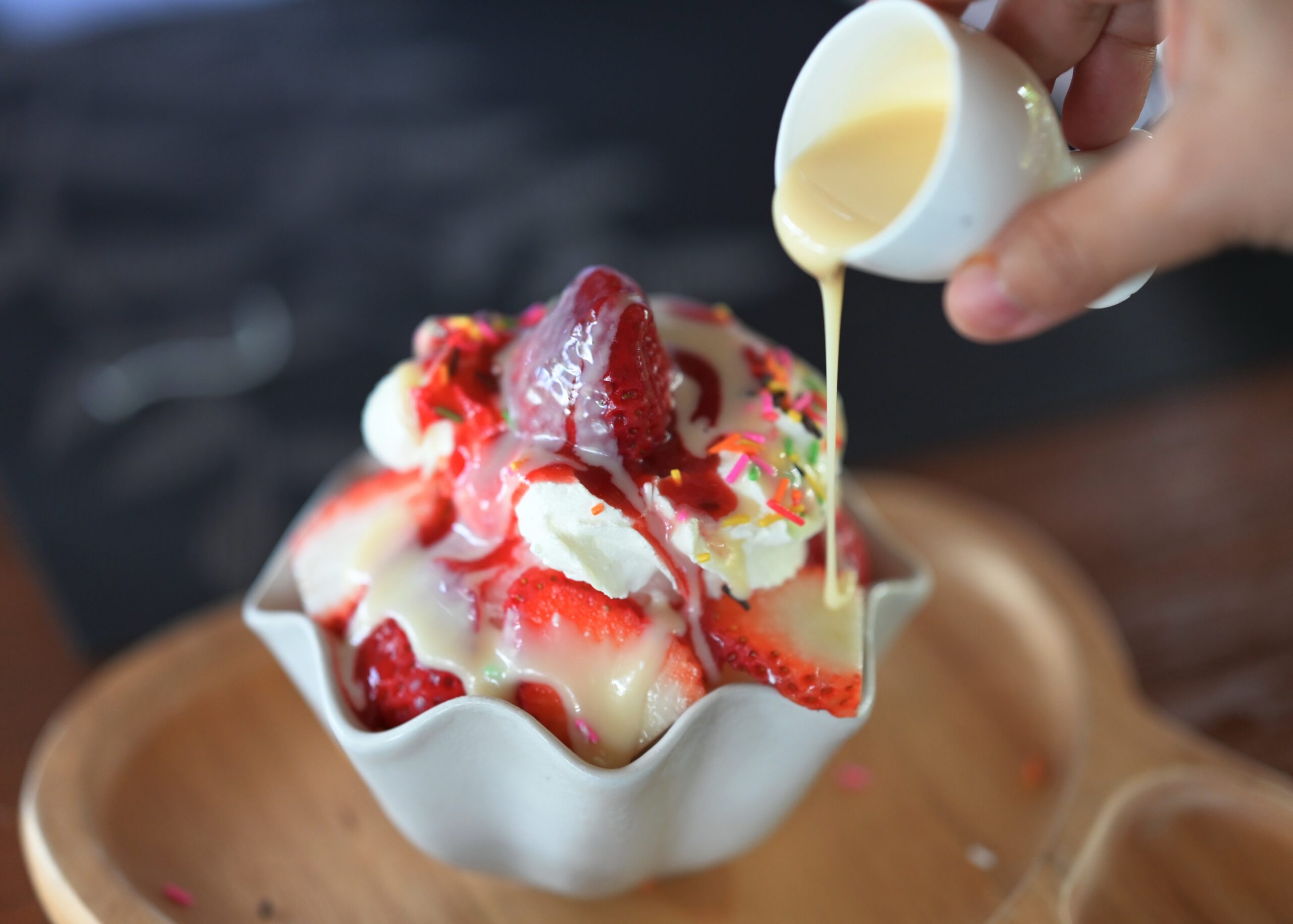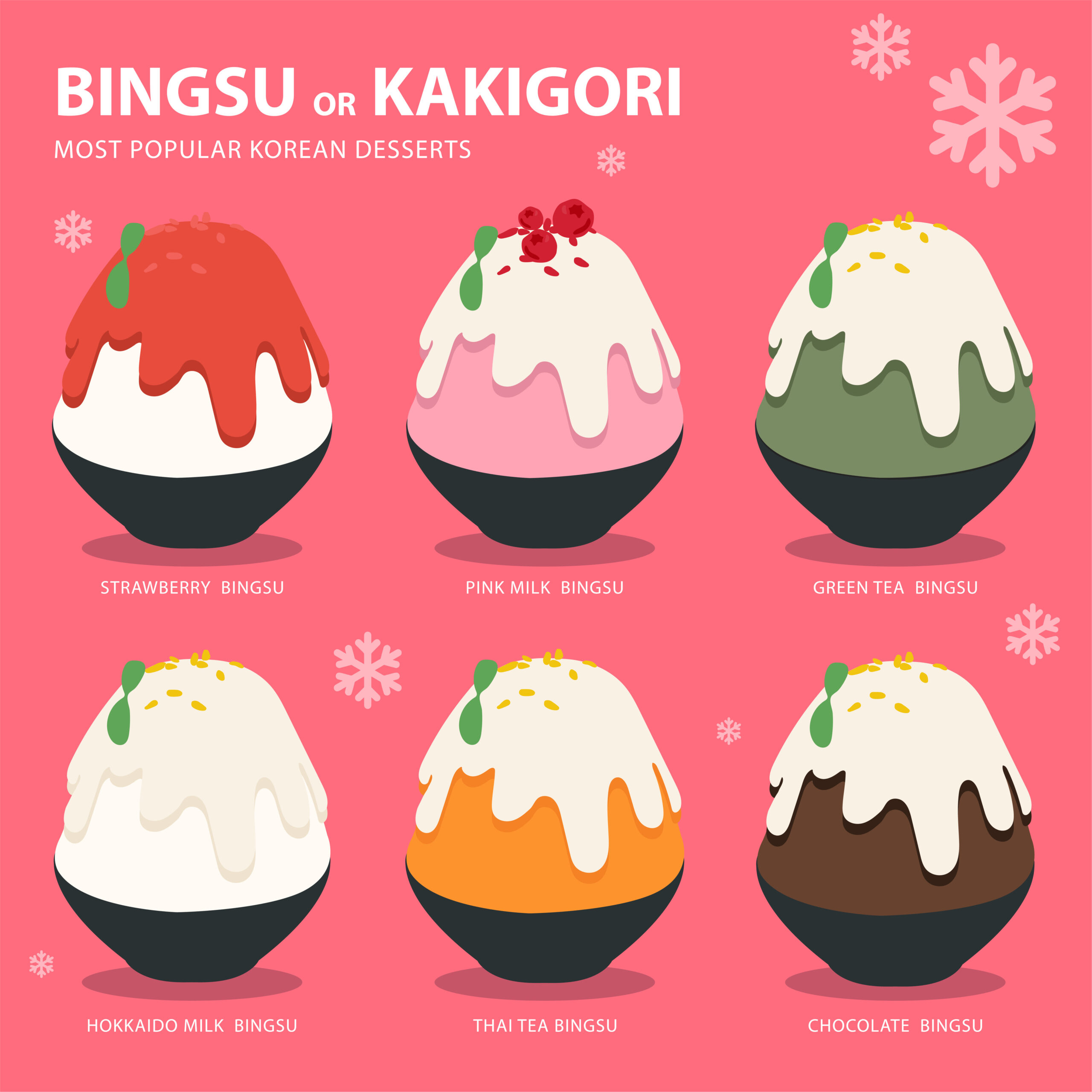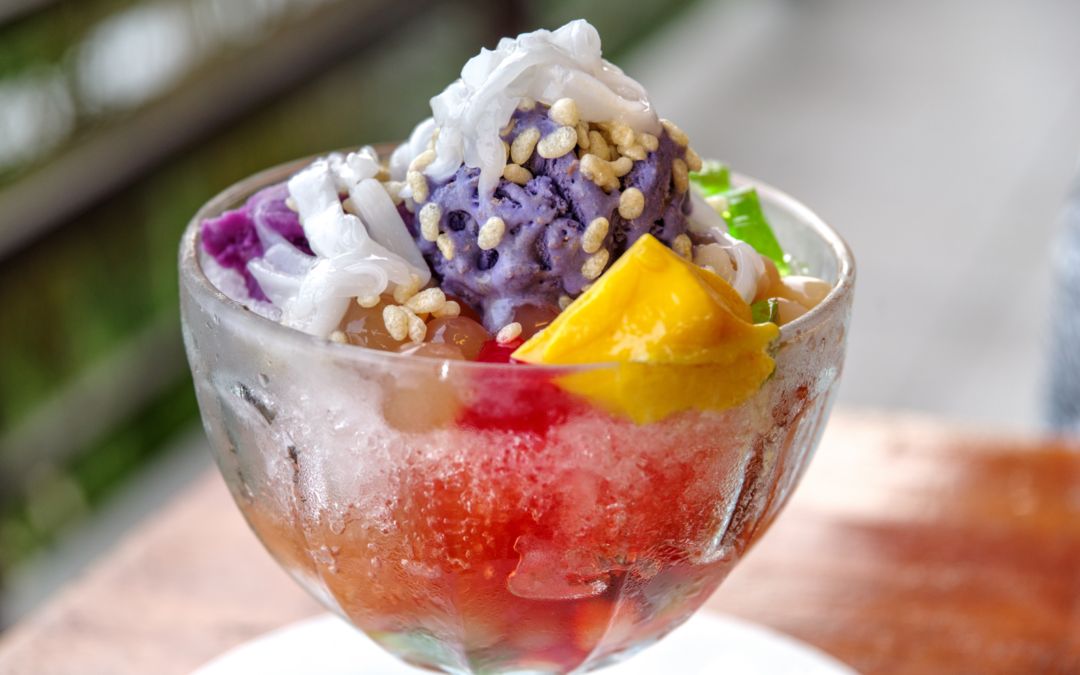
What is Halo-Halo?
Filipino Shaved Ice – Halo-Halo
The Philippines is known for its beautiful beaches, friendly people and impeccable English but what about Filipino cuisine?
Well, grab a spoon and get ready to jump into a big bowl of Halo-Halo! We’re going to explore its history, ingredients, preparation and cultural significance in the Philippines.
What is Filipino Halo Halo?
Halo Halo, which means “mix-mix” in Filipino, is a delightful cold dessert that combines a wide array of ingredients. It’s more than just a treat; it’s a symphony of flavors, textures, and colors. A true culinary masterpiece, Halo Halo is a must-try for anyone visiting the Philippines.
The History of Halo Halo
Halo Halo has a rich history dating back to the pre-colonial Philippines. The concept of mixing various ingredients was inspired by the locals who made do with what they had. Over time, it evolved into the beloved dessert we know today.
Halo Halo Ingredients
Halo Halo’s charm lies in its diverse ingredients, which come together to create a harmonious taste experience. Some key components include:
- Shaved Ice
- Sweetened Fruits
- Leche Flan
- Ube Halaya
- Sago Pearls
- Gulaman
- Pinipig
Assembling Halo Halo
The art of assembling Halo Halo involves layering the ingredients strategically. Each layer adds a new dimension to the dessert, creating a delightful surprise with every scoop.
Popular Variations of Halo Halo
Different regions in the Philippines have their own spin on Halo Halo, incorporating local ingredients and unique twists. Some variations are more tropical, while others are creamier and sweeter.
The Cultural Significance
Halo Halo is more than just a dessert; it’s a cultural symbol. It represents the diverse heritage of the Philippines, with ingredients reflecting the country’s history and influences.
Halo Halo Around the World
Filipino expatriates have taken Halo Halo with them, introducing it to different parts of the world. As a result, you can now find this delectable dessert in various international locations.
How to Make Halo Halo at Home
Don’t fret if you’re far from the Philippines; you can make Halo Halo at home. We’ll provide you with a simple recipe to create this tropical masterpiece in your own kitchen.
Best Places to Enjoy Halo Halo in the Philippines
For the ultimate Halo Halo experience, we’ll guide you to some of the best places in the Philippines where you can savor this sweet delight.
Halo Halo: A Taste of Summer
Halo Halo is synonymous with the scorching Philippine summers. It’s the perfect way to cool down and indulge in something sweet and refreshing.
Halo Halo and Filipino Festivals
Discover how Halo Halo plays a central role in Filipino celebrations and festivals, bringing communities together over shared joy and flavor.
The Allure of Halo Halo
The enchanting blend of ingredients, the satisfying crunch of shaved ice, and the sweetness of Filipino history – these are the factors that make Halo Halo irresistible.
FAQs
What does “Halo Halo” mean?
“Halo Halo” means “mix-mix” in Filipino, referring to the way the dessert is prepared by mixing various ingredients.
Can I make Halo Halo at home?
Absolutely! We provide a simple recipe for making Halo Halo in the comfort of your home.
What are the must-try variations of Halo Halo?
Some popular variations include “Halo Halo Special” and “Halo Halo Espesyal,” known for their extra toppings and flavors.
Is Halo Halo only available in the Philippines?
No, you can find Halo Halo in Filipino communities worldwide.
Is Halo Halo available year-round?
While it’s most popular in the summer, you can usually find it in the Philippines throughout the year.
